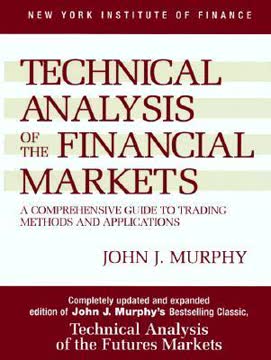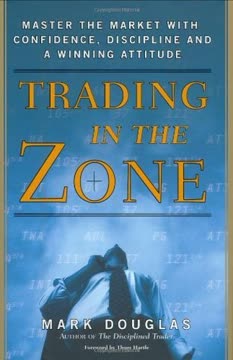ключевых вывода
1. Освойте психологию торговли на фондовом рынке
«Я всегда действовал в одиночку. Так устроен мой ум. Мне нужно самому видеть и самому думать.»
Личный взгляд имеет значение. Успешная торговля — это прежде всего психологическая игра, требующая независимого мышления и уверенности в себе. Ларри Ливингстон подчёркивает важность выработки собственного подхода к анализу рынка, а не слепого следования чужим советам или общепринятым мнениям.
Ключевые психологические качества:
- Ментальная независимость
- Уверенность в себе
- Критическое мышление
- Эмоциональная отстранённость от колебаний рынка
Торговля как игра разума. Фондовый рынок — это не столько математика, сколько понимание человеческого поведения, настроений рынка и собственных психологических реакций на его изменения. Крепкий ментальный фундамент — залог долгосрочного успеха.
2. Развивайте дисциплину и самоконтроль в спекуляциях
«Всегда выгодно быть правым в нужное время.»
Терпение и своевременность. Успешная торговля — это не постоянные действия, а стратегическое ожидание. Ливингстон акцентирует внимание на умении ждать подходящего момента и дисциплине действовать только при благоприятных условиях.
Стратегии дисциплины:
- Ждать чётких сигналов рынка
- Избегать торговли в неопределённые периоды
- Контролировать импульс постоянных сделок
- Разработать системный подход к входу и выходу из рынка
Механизмы самоконтроля. Трейдеры должны уметь управлять эмоциями, избегать ненужных рисков и придерживаться методичного подхода. Дисциплина отделяет профессионалов от любителей.
3. Учитесь на ошибках и используйте опыт
«Каждый раз, когда я терял деньги, я чему-то учился. Я хотел не просто понять, чего не делать, а узнать, что делать.»
Ошибки — это уроки. Ливингстон рассматривает финансовые потери не как поражения, а как плату за обучение важным рыночным урокам. Каждая ошибка — шанс улучшить стратегии и понимание.
Процесс обучения:
- Систематически анализировать каждую сделку
- Записывать решения и результаты
- Выявлять закономерности успехов и неудач
- Постоянно адаптировать и совершенствовать стратегии
Обучение на опыте. Истинное мастерство приходит с накоплением опыта, анализом прошлых действий и использованием этих знаний для принятия лучших решений в будущем.
4. Понимайте рыночные тренды и следуйте пути наименьшего сопротивления
«Путь наименьшего сопротивления задаёт лента.»
Понимание динамики рынка. Успешная торговля требует понимания общих рыночных тенденций и следования им, а не борьбы с ними.
Методы анализа трендов:
- Изучать настроение рынка
- Наблюдать за движением цен
- Понимать поведение толпы
- Распознавать циклы рынка
Адаптивная стратегия. Трейдеры должны быть гибкими и готовы менять подход в зависимости от рыночных условий, всегда учитывая естественный импульс рынка.
5. Избегайте ловушки советов и слухов
«Я всегда зарабатывал, опираясь на собственное мнение. Я не продаю и не капитализирую чужие.»
Независимость в принятии решений. Советы и слухи — опасные отвлечения, которые могут сбить с пути. Успешная торговля требует развития и доверия к собственным аналитическим навыкам.
Как избежать информационных ловушек:
- Проверять информацию самостоятельно
- Развивать навыки личных исследований
- Скептически относиться к непрошеным советам
- Сосредотачиваться на фундаментальном анализе
Критическое мышление. Умение отсеивать шум и принимать самостоятельные, обоснованные решения — ключевой навык трейдера.
6. Различайте инвестирование и спекуляцию
«Спекуляция — это тяжёлое и требовательное дело, и спекулянт должен быть на чеку постоянно, иначе скоро останется без работы.»
Разные подходы к торговле. Инвестирование и спекуляция — это принципиально разные виды деятельности, требующие разных установок, навыков и стратегий.
Основные различия:
- Сроки участия
- Уровень риска
- Обработка информации
- Подход к принятию решений
Профессиональный настрой. Успешные спекулянты относятся к торговле как к серьёзной профессии, требующей постоянного обучения, адаптации и дисциплинированного исполнения.
7. Управляйте эмоциями и сохраняйте рациональность
«Злиться на рынок — бесполезно.»
Контроль эмоций. Эмоциональные реакции могут разрушить успех в торговле. Важно сохранять рациональный и объективный взгляд для стабильных результатов.
Стратегии управления эмоциями:
- Развивать эмоциональную отстранённость
- Создавать системные правила торговли
- Практиковать осознанность
- Учиться на победах и поражениях
Психологическая устойчивость. Умение сохранять спокойствие под давлением и принимать взвешенные решения — отличительная черта успешных трейдеров.
8. Формируйте устойчивость и адаптивность в торговле
«Если я терял деньги, я забывал об этом за ночь. Знал, что будет ещё шанс.»
Философия устойчивости. Ливингстон подчёркивает важность умения быстро восстанавливаться после неудач, рассматривая их как временные и полезные уроки.
Как развивать устойчивость:
- Формировать мышление роста
- Поддерживать финансовые и эмоциональные резервы
- Быстро учиться на ошибках
- Оставаться гибким в меняющихся условиях рынка
Постоянное совершенствование. Успешные трейдеры видят в трудностях возможности для развития и роста.
9. Разработайте системный подход к торговле
«Наблюдение, опыт, память и математика — вот на что должен опираться успешный трейдер.»
Системная торговля. Важно выстроить структурированный и дисциплинированный подход, основанный на тщательном наблюдении и анализе.
Элементы системности:
- Тщательное исследование рынка
- Последовательная методология торговли
- Количественный анализ
- Постоянное обучение и адаптация
Методичное исполнение. Успех приходит к тем, кто последовательно и объективно применяет системный подход.
10. Понимайте манипуляции на рынке и их механику
«Манипуляция — это искусство рекламы через ленту.»
Механизмы рынка. Понимание того, как работают манипуляции, помогает трейдерам стать более опытными и осознанными.
Знания о манипуляциях:
- Распознавать методы влияния на рынок
- Понимать психологические аспекты рынка
- Развивать навыки критического наблюдения
- Избегать манипуляций
Стратегическая осведомлённость. Знание о манипуляциях помогает принимать более взвешенные и продуманные решения.
Последнее обновление:
FAQ
What's Reminiscences of a Stock Operator about?
- Fictionalized Memoir: The book is a fictionalized account of Jesse Livermore's life, a renowned stock trader from the early 20th century, narrated by Edwin Lefèvre.
- Trading Insights: It delves into the psychology of trading, market behavior, and the lessons learned from both successes and failures in the stock market.
- Personal Journey: The narrative follows the protagonist's journey through the stock market, detailing his mistakes, successes, and the lessons learned along the way.
Why should I read Reminiscences of a Stock Operator?
- Timeless Wisdom: Despite being published in 1923, the book contains trading principles and philosophies that remain relevant to modern investors and traders.
- Real-Life Lessons: Readers can learn from Livermore's experiences, including his mistakes and triumphs, which provide valuable lessons on risk management and market psychology.
- Engaging Narrative: Lefèvre's storytelling makes complex trading concepts accessible and engaging, making it a compelling read for both novice and experienced traders.
What are the key takeaways of Reminiscences of a Stock Operator?
- Understanding Market Psychology: The book highlights the importance of understanding the psychology of the market and the behavior of other traders.
- Importance of Timing: Livermore emphasizes that timing is crucial; one must act when the market conditions are right, not based on emotions or external pressures.
- Learning from Mistakes: The narrative stresses the value of learning from one’s mistakes and adapting strategies accordingly to improve future trading outcomes.
What are the best quotes from Reminiscences of a Stock Operator and what do they mean?
- "The tape does not concern itself with the why and the wherefore.": This quote underscores the idea that traders should focus on market movements rather than trying to rationalize them.
- "A man may beat a stock or a group at a certain time, but no man living can beat the stock market!": This emphasizes the unpredictability of the market and the futility of trying to outsmart it consistently.
- "It is literally true that millions come easier to a trader after he knows how to trade than hundreds did in the days of his ignorance.": This reflects the importance of knowledge and experience in trading, suggesting that understanding the market leads to greater success.
What trading strategies does Livermore discuss in Reminiscences of a Stock Operator?
- Tape Reading: Livermore discusses the importance of reading the tape to understand price movements and market trends, which is a fundamental skill for traders.
- Pyramiding: He explains the strategy of pyramiding, which involves adding to a winning position as the price moves in the trader's favor, thereby maximizing profits.
- Cutting Losses: Livermore emphasizes the necessity of cutting losses quickly to prevent small losses from becoming larger, a critical aspect of risk management.
How does Livermore define a successful trader in Reminiscences of a Stock Operator?
- Self-Awareness: A successful trader must possess self-awareness, understanding their own psychological tendencies and how they affect trading decisions.
- Patience and Discipline: Livermore highlights that patience and discipline are essential traits, allowing traders to wait for the right opportunities and stick to their strategies.
- Adaptability: The ability to adapt to changing market conditions and learn from past mistakes is crucial for long-term success in trading.
What mistakes does Livermore frequently make in Reminiscences of a Stock Operator?
- Overtrading: Livermore often reflects on the mistake of overtrading, where he would enter and exit positions too frequently, leading to unnecessary losses.
- Ignoring Market Conditions: He discusses times when he ignored broader market conditions and focused too much on individual stocks, which resulted in poor trading decisions.
- Following Tips: Livermore admits to being swayed by tips from others, which led him to make trades that contradicted his own analysis and instincts.
How does Livermore's approach to risk differ from that of other traders in Reminiscences of a Stock Operator?
- Calculated Risks: Livermore takes calculated risks based on thorough analysis and market conditions, rather than gambling or following the crowd.
- Emphasis on Margins: He discusses the importance of maintaining adequate margins to protect against losses, which is a more disciplined approach compared to many traders who may over-leverage.
- Long-Term Perspective: Unlike many traders who focus on short-term gains, Livermore emphasizes the importance of understanding long-term market trends and positioning accordingly.
What role does psychology play in trading according to Reminiscences of a Stock Operator?
- Emotional Control: Livermore stresses the need for emotional control, as fear and greed can lead to irrational trading decisions that result in losses.
- Market Sentiment: He discusses how understanding market sentiment and the psychology of other traders can provide insights into potential market movements.
- Self-Reflection: The narrative encourages traders to engage in self-reflection to understand their own psychological triggers and how they impact trading behavior.
How does Livermore view the relationship between speculation and investment in Reminiscences of a Stock Operator?
- Speculation vs. Investment: Livermore distinguishes between speculation, which involves short-term trading based on price movements, and investment, which focuses on long-term value.
- Different Mindsets: He notes that speculators and investors have different mindsets; speculators must be more agile and responsive to market changes, while investors can afford to be patient.
- Risk Tolerance: The book highlights that speculation typically involves higher risk and requires a different approach to risk management compared to traditional investing.
What lessons does Livermore learn about market cycles in Reminiscences of a Stock Operator?
- Cyclical Nature: Livermore learns that markets are cyclical, with periods of expansion followed by contraction, and that understanding these cycles is key to successful trading.
- Timing the Market: He emphasizes the importance of timing in relation to market cycles, knowing when to enter and exit positions based on the prevailing cycle.
- Historical Patterns: The narrative illustrates how historical patterns can provide insights into future market behavior, allowing traders to anticipate potential movements.
How does the protagonist recover from his losses in Reminiscences of a Stock Operator?
- Learning from Mistakes: The protagonist emphasizes the importance of learning from past mistakes and using those lessons to inform future trading decisions.
- Gradual Rebuilding: He gradually rebuilds his trading capital by adopting a more disciplined approach and focusing on sound trading principles, rather than impulsive decisions.
- Emotional Resilience: The narrative illustrates the protagonist's emotional resilience, as he learns to manage his feelings and maintain a clear focus on his trading strategy, ultimately leading to his recovery.
Отзывы
«Воспоминания биржевого спекулянта» вызывают неоднозначные отзывы. Многие ценят эту книгу за вечные истины о психологии трейдинга и человеческой природе на финансовых рынках. Читатели отмечают увлекательный стиль повествования и историческую перспективу. Однако некоторые считают её повторяющейся или устаревшей, сомневаясь в её актуальности для современного инвестирования. Критики упрекают автора в прославлении спекуляций и предупреждают, что книга может ввести в заблуждение неопытных трейдеров. Несмотря на свой возраст, произведение остаётся популярным среди профессионалов финансовой сферы благодаря урокам о поведении рынка, управлении рисками и важности самодисциплины в торговле.
Similar Books














